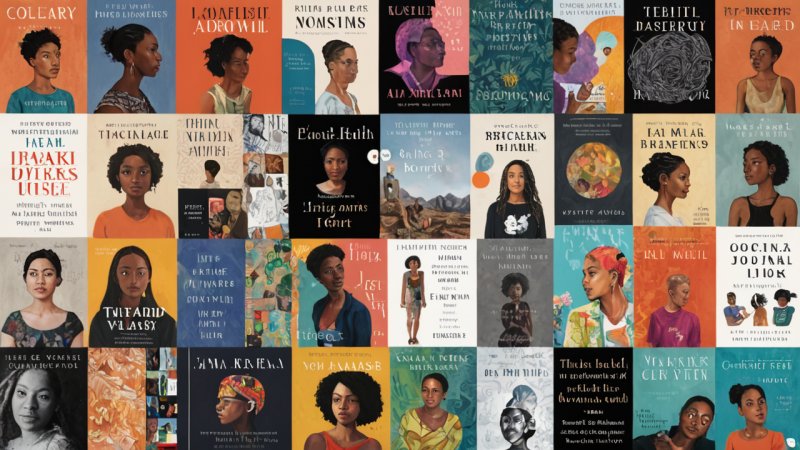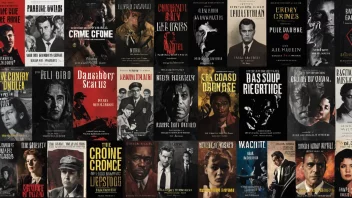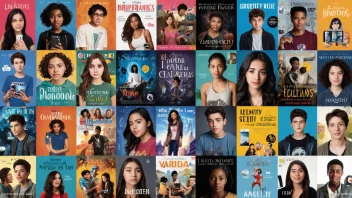In the vast landscape of contemporary fiction, themes serve as the backbone of narratives, providing depth and resonance that connect readers to the text. As authors navigate the complexities of modern life, they weave a rich tapestry of issues such as identity, technology, social justice, and mental health into their storytelling. This article delves into the prominent themes found in contemporary fiction literature, examining how they reflect societal changes and the human experience, while also highlighting exemplary works that embody these themes.
Identity and Self-Discovery
One of the most prevalent themes in contemporary fiction is the exploration of identity and self-discovery. With globalization and increased cultural exchange, authors often depict characters wrestling with their sense of self in multifaceted ways.
- Examples in Literature: Works such as The Namesake by Jhumpa Lahiri and Americanah by Chimamanda Ngozi Adichie delve into the complexities of cultural identity, immigration, and the search for belonging.
- Character Development: These narratives often feature protagonists who confront their heritage, navigating the intersections of race, ethnicity, and personal history.
This theme resonates with readers, prompting reflection on their own identities in an increasingly interconnected world.
Technology and Human Connection
As we advance into the digital age, many contemporary authors grapple with the impact of technology on human relationships. The theme of technology and its influence on communication is evident in various narratives.
- Notable Works: In Super Sad True Love Story by Gary Shteyngart, the author critiques a society obsessed with technology, exploring how it diminishes genuine human connection.
- Social Media Influence: Novels like Then We Came to the End by Joshua Ferris showcase the absurdities of office life in the context of a tech-driven world, raising questions about isolation in a hyper-connected society.
These explorations illustrate the tension between technological advancement and the intrinsic human need for authentic relationships.
Social Justice and Activism
Contemporary fiction often serves as a platform for social justice, with many authors addressing pressing societal issues through their narratives. From racial inequality to environmental concerns, these themes challenge readers to engage with the world around them.
- Powerful Narratives: Books like The Hate U Give by Angie Thomas tackle police brutality and racial discrimination, giving voice to marginalized communities and igniting crucial conversations.
- Intersectionality: Authors such as Tommy Orange in There There highlight the intersection of various identities, emphasizing the need for solidarity in the fight for justice.
These works not only entertain but also educate, inspiring readers to become advocates for change.
Mental Health and Emotional Resilience
The theme of mental health has gained prominence in contemporary fiction, as authors break the stigma and explore characters' psychological struggles. These narratives often resonate deeply with readers who may share similar experiences.
- Relatable Characters: In The Bell Jar by Sylvia Plath and Girl, Interrupted by Susanna Kaysen, the protagonists confront mental illness, offering poignant insights into their inner battles.
- Empathy and Understanding: Modern novels like Everything I Never Told You by Celeste Ng explore the complexities of family dynamics and the impact of unaddressed emotional trauma.
These stories foster empathy and understanding, encouraging open dialogues about mental health in society.
The Fluidity of Genre
Contemporary fiction increasingly blurs the lines between genres, leading to innovative storytelling that defies traditional categorization. This fluidity allows authors to explore themes in fresh and engaging ways.
- Genre-Bending Examples: Novels like Station Eleven by Emily St. John Mandel combine elements of science fiction and literary fiction, exploring themes of survival and the human spirit in a post-apocalyptic world.
- Hybrid Narratives: Authors such as Ocean Vuong in On Earth We're Briefly Gorgeous blend poetry and prose to examine identity, love, and loss, showcasing the versatility of contemporary fiction.
This genre-bending approach reflects the complexities of modern life, inviting readers to engage with diverse narratives.
Conclusion
Contemporary fiction is a vibrant and dynamic field that reflects the multifaceted nature of modern existence. Through the exploration of themes such as identity, technology, social justice, mental health, and genre fluidity, authors invite readers to engage deeply with the human experience. These narratives not only entertain but also provoke thought and inspire change, fostering a love of reading that transcends the pages of books. As we navigate an ever-evolving world, contemporary fiction remains a vital lens through which we can examine ourselves and our society.






